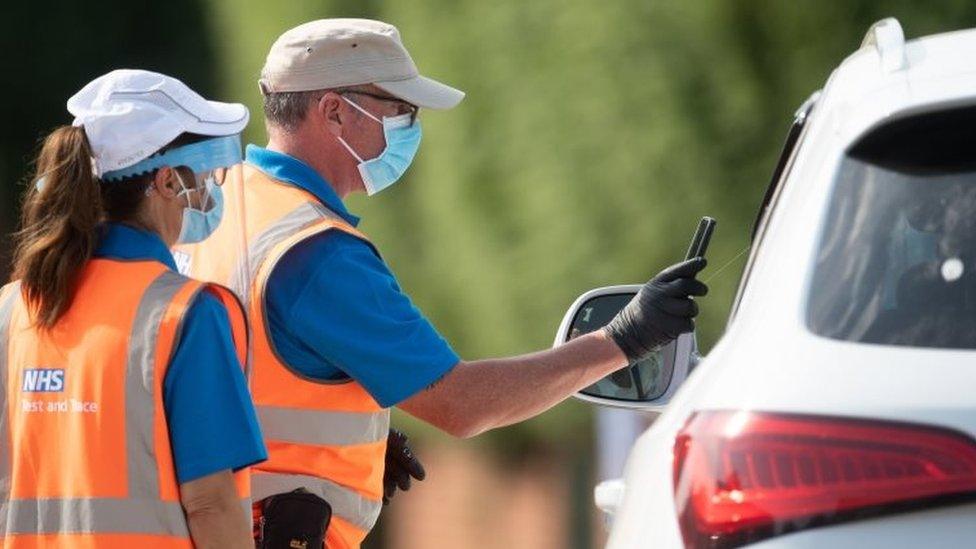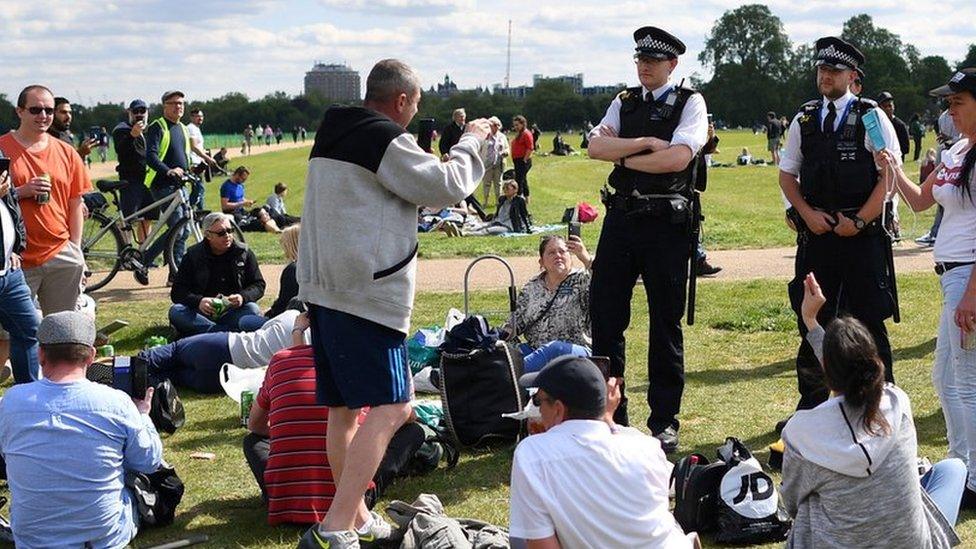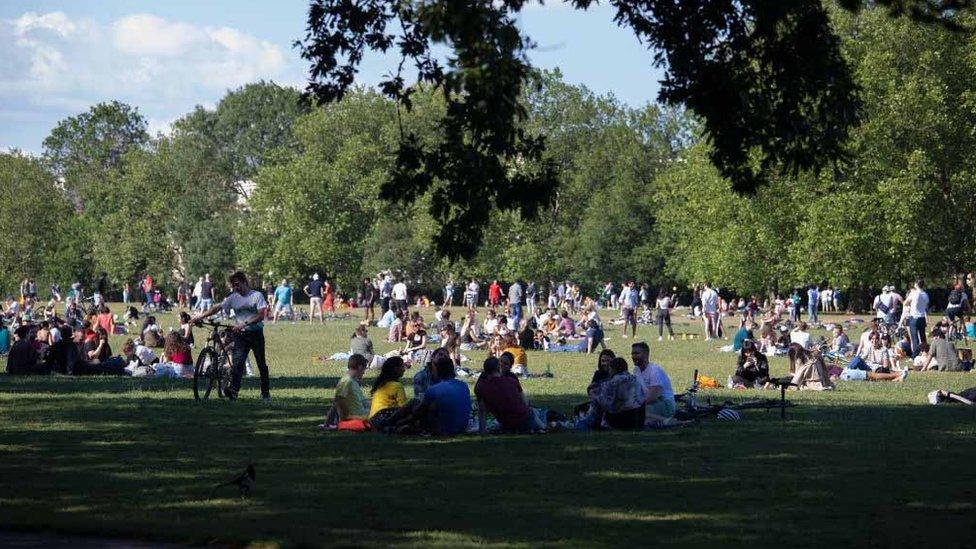Coronavirus: Families 'mingling' would be breaking rule of six - home secretary
- Published
- comments
Home Secretary Priti Patel explains why "mingling" is against the latest Covid-19 restrictions
Families stopping to talk in the street would be in breach of the rule of six restrictions, the home secretary has said.
Priti Patel told the BBC that two families of four stopping for a chat on the way to the park was "absolutely mingling".
She said she would report her neighbours if they broke the rules.
The rules restrict indoor and outdoor gatherings in England and Scotland, and indoor groups in Wales.
The new measures mean police can break up groups larger than six, with fines of up to £3,200 if people flout the rules.
Speaking to BBC Radio 4's Today programme, Ms Patel said that two families of four stopping for a chat on the way to the park was "absolutely mingling".
"You have got to put this in the context of coronavirus and keeping distance, wearing masks," she said.
"The rule of six is about making sure that people are being conscientious and not putting other people's health at risk."
The home secretary added: "Mingling is people coming together. That is my definition of mingling."
When asked if she would call the police on her neighbours if they breached the new coronavirus rules, Ms Patel told BBC Breakfast: "I don't spend my time looking into people's gardens."
Pressed further on the topic, she said anybody would want to "take responsibility" to help to stop the spread of the virus, adding that if she saw gatherings of more than six, "clearly I would report that".
Ms Patel's comments echo those made by Policing Minister Kit Malthouse, who suggested that people should ring the non-emergency 101 number if they had concerns that people were breaching the law.
Allow X content?
This article contains content provided by X. We ask for your permission before anything is loaded, as they may be using cookies and other technologies. You may want to read X’s cookie policy, external and privacy policy, external before accepting. To view this content choose ‘accept and continue’.

It comes as the national chairman of the Police Federation of England and Wales called for guidance over enforcement of the measures.
Speaking to Good Morning Britain, John Apter said that police officers on the frontline were "trying to interpret" the rules, and were being accused of "asking (people) to snitch on their neighbours".
He added: "Maybe we should have guidance, because we haven't had any yet."
Government guidelines include exemptions for physical activities that can be done in groups of more than six, such as football, hockey and netball, as well as sailing, angling and polo.
Shooting - including hunting and paintball that requires a shotgun or firearms certificate licence - is also exempt as an organised sport.

YOUR QUESTIONS: We answer your queries
THE R NUMBER: What it means and why it matters
LOCAL LOCKDOWNS: What happens if you have one?
TEST AND TRACE: How does it work?
FURLOUGH: What happens when the scheme ends?

Earlier, Ms Patel defended the government's record on testing, following widespread reports of people struggling to get swabbed.
She told BBC Breakfast the government was "surging capacity" where it was needed.
Priti Patel challenged on coronavirus testing delays
"Clearly there is much more work that needs to be undertaken with Public Health England and the actual public health bodies in those particular local areas, and as a government obviously we work with Public Health England to surge where there is demand in local hotspot areas."
Health Secretary Matt Hancock has said the system is facing an "enormous challenge" after a "sharp rise" in people seeking a test. He said it would take a "matter of weeks" to resolve the problems.
- Published15 September 2020

- Published14 September 2020

- Published11 September 2020
